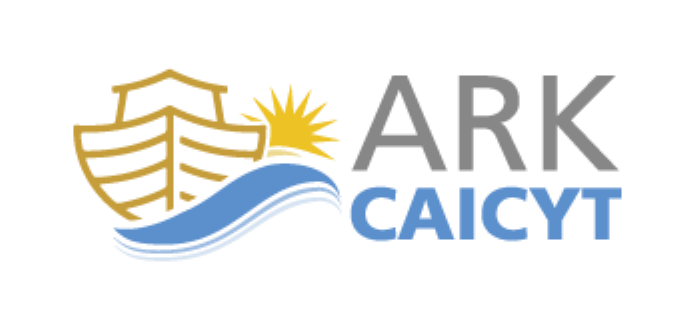Pedagogical contributions of metaproyectual thinking. Learning architectural design in the university degree
Keywords:
Metaprojectual thinking, Learning, Project Strategies, Evolutionary HousingAbstract
In the search for authentic learning, knowledge and information are not the only variables; It is pertinent to inquire into the processes of thinking that make the appropriation of the contents and their personal evolution possible: to redifing knowledge.
The incorporation of project practices that overcome the resolution of an specific functional problem towards opening processes that involve multiple variables, strategies and resolutions, entails an evolution in the way of understanding the disciplinary field. We define these practices as “metaprojectuals”. The objective of this paper is to analyze the contributions of learning focused on metaprojectual design to the training of architects in a case study.
The selected methodology is of exploratory type and the field of study is the Faculty of Architecture, Urbanism and Design of the National University of Mar del Plata, in the Workshop of Architectural Design 4 A-T.
In response to the question, “what does learning centered on metaprojectual design contribute to the training of architects?” We can affirm that the main contribution comes from confronting future professionals with the commitment to solve a project exercise that requires concrete and efficient responses to the prevailing social urgency, based on the management of limited resources and diverse users.
Metaprojectual thinking implies a new dimension of how we conceptualize needs and resources, in virtue of perfectible solutions.
Downloads
References
BARRÓN TIRADO, C. (2003). Perspectivas socioeducativas e innovación curricular. Perfiles educativos. Vol. 25 N° 101. Pps. 105 a 107. Universidad Nacional Autónoma de México.
BEDOYA, J. I. (2013). Pedagogía ¿enseñar a pensar?, Madrid: Ecoe.
DAY, Ch. (2018). Pasión por enseñar. Madrid: Narcea
FANDIÑO, C (2017). Programa de formación docente en metacognición. (Tesis de Maestría) Pontificia Universidad Javeriana, Bogotá.
FREIRE, P. (2008). Pedagogía de la autonomía. Argentina: Siglo XXI editores.
HABERMAS, J. (2011). Teoría de la acción comunicativa: complementos y estudios previos. Madrid: Cátedra.
JONES, Ch. (1978). Métodos de Diseño. Barcelona: G. Gilli.
KURI, R., BERTUZZI, H., BADILLOS, G., y LARIO, F. (2003). Metaproyectos 2001. Revista Series Pedagógicas nro. 8. FAUD UNMdP. Mar del Plata.
REARDEN, E., BERTUZZI, H., GUGLIELMOTTI, L., OXARANGO, E., y DÍAZ VARELA, M. J. (2017). La adaptabilidad en la vivienda. Estrategia para el diseño y la enseñanza. XXI Congreso Arquisur. El saber proyectual. Sus lógicas, procesos y estrategias. San Juan, Argentina.
SHÖN, D. (1992). La formación de profesionales reflexivos, Barcelona: Paidós.
TSCHUMI, B. (2019). Enseñar arquitectura. Revista Arquine n° 88. México: Miguel Adriá.
Organizaciones consultadas
UNIÓN INTERNACIONAL DE ARQUITECTOS (1999). Acuerdo sobre las normas internacionales de profesionalidad recomendadas para el ejercicio de la arquitectura. XXI Asamblea de la UIA. Beijing. China.
Downloads
Published
How to Cite
Issue
Section
License
Aquellos autores/as que tengan publicaciones con esta revista, aceptan los términos siguientes:
- Los autores ceden a Revista I+A de forma gratuita y no exclusiva, los derechos de reproducción, distribución y comunicación pública de su obra, autorizando asimismo su inclusión en la revista digital; su transformación, siempre que sea necesaria para permitir su preservación y uso en formato electrónico, así como para la incorporación de sistemas de seguridad y/o identificación de procedencia y el almacenamiento en servidores institucionales
- La obra estará sujeta a la Licencia de reconocimiento de Creative Commons BY, que permite a terceros compartir la obra indicando su autor y su primera publicación esta revista.
- El/los autor/es podrá/n adoptar otros acuerdos de licencia no exclusiva de distribución de la versión de la obra publicada (p. ej.: depositarla en un archivo telemático institucional o publicarla en un volumen monográfico) siempre que se indique la publicación inicial en esta revista.
- Se permite y recomienda a los autores/as difundir su obra, tanto en sus sitios web personales, en repositorios institucionales o temáticos en cualquier versión: pre-print, post print o el archivo pdf publicado en la revista, respetando la licencia de uso Creative Commons Atribución 4.0 otorgada por la revista
- El/los autor/es deberá/n declarar la originalidad del material y transferir los derechos para la publicación. No se pagarán derechos de autor.





